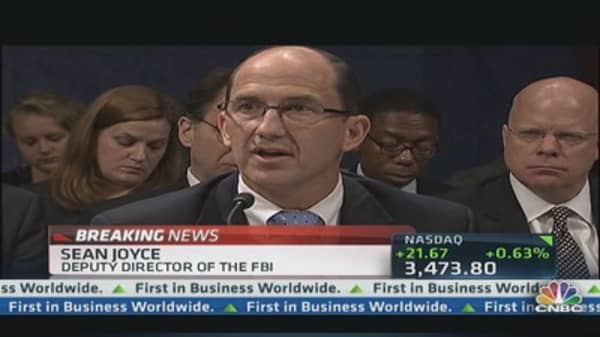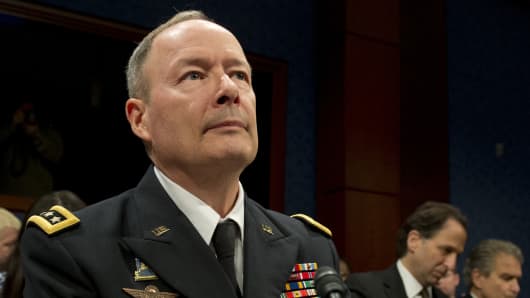In the stock exchange plot, the NSA used Internet surveillance to find an extremist in Yemen who was in contact with an operative in the United States, said Sean Joyce, deputy director of the FBI.
He said that intelligence agents were able to detect "nascent plotting" to bomb the exchange.
Joyce also said that NSA phone surveillance had led intelligence agents to someone in San Diego who was providing financial support to a terrorist group in Somalia. Joyce appeared reluctant to provide further details of that case.
More From NBC News:
It's Jeep vs Uncle Sam as Chrysler May Defy Huge Recall
Plane War Pits Boeing's New Dreamliner vs Airbus A350
With Help From Chinese Auto Plants, Volvo Hopes to Thrive
The FBI official said that NSA surveillance helped stop a plot to bomb the New York subway system, a justification that public officials have previously used to defend the surveillance programs.
In that plot, Joyce said, the NSA intercepted an email from a terrorist in Pakistan in 2009 who was talking with someone in the United States about perfecting a recipe for explosives.
Joyce said that person turned out to be Najibullah Zazi, who later pleaded guilty in the plot and is in federal prison.
The programs also linked an American citizen in Chicago to the 2008 terror attacks on hotels in India and to a plot to bomb the offices of a Danish newspaper that published a cartoon of the Prophet Muhammad, Joyce said.
(Read More: China Asks US to Explain Internet Surveillance)
The American citizen in Chicago was David Headley, who earlier this year was sentenced to 35 years in prison. Headley had cooperated with U.S. investigators and foreign intelligence agencies.
Joyce said, however, that he could not pinpoint how important the surveillance programs were to stopping the plots.
"I think you ask an almost impossible question, to say how important each dot was," he told one congressman.
Both officials insisted that the programs are critical to protecting the country, are limited and subject to rigorous oversight, and carefully protect the civil liberties of Americans. They stressed that intelligence agents do not listen to Americans' phone calls or read Americans' email unless they have a warrant, and said the secret court that monitors surveillance operations was not a rubber stamp.
President Barack Obama defended the programs in an interview with Charlie Rose of PBS on Monday. He stressed that it was important to him to set up checks on the system.
"On this telephone program, you've got a federal court with independent federal judges overseeing the entire program," he said, adding that "all of Congress had available to it before the last reauthorization exactly how this program works."
Asked how Americans can be sure that the NSA can't simply "flip a switch" and listen to a phone call, as opposed to gathering information about the length and phone numbers involved, Alexander said it was the NSA's intention to "do this exactly right."
"We have not seen one of our analysts willfully do something wrong," he said.
In introducing Alexander, the committee chairman, Rep. Mike Rogers, R-Mich., said that Americans' trust in government to protect the country has been damaged by "inaccuracies, half-truths and outright lies" about intelligence programs.
(Read More: Yahoo Says It Had as Many as 13,000 Data Requests)
"It is at times like these when our enemies within become almost as damaging as our enemies on the outside," Rogers said.
Alexander said that Snowden's disclosures would have a "long and irreversible impact" on the security of the United States and its allies.
"This is significant," he said.
Snowden, who left the country for Hong Kong before he revealed himself as the source of the leaks, said Monday in an Internet chat that the U.S. government could not cover up its actions by "jailing or murdering him."
"Truth is coming, and it cannot be stopped," he said.
Joyce, the FBI official, was asked by Rep. Tom Rooney, R-Fla., what was next for Snowden. After a pause, he said: "Justice."
—By Erin McClam, NBC News




